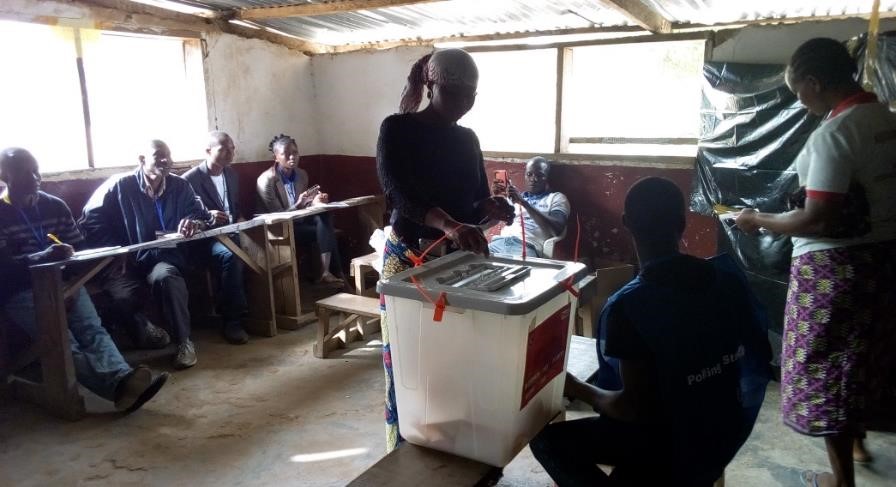With Liberians going to the polls once again, there have been different debates concerning the by-elections for the vacant senate positions. The Senate recently passed a bill requiring lawmakers to resign from their positions when contesting other vacancies in the National Legislature. While the justification for this bill is to save the government money by reducing the number of by-elections, the move has brought both supporters and critics.
The constitution sets a term of six years for the president and the House of Representatives, with senators having nine-year terms. The elections for the president and representatives are held during the same year, while senatorial elections take place in the middle of the presidential term. With the election of President George M. Weah and Vice President Jewel Howard-Taylor, both of whom were sitting senators when they contested, there are now two vacancies in the Senate, requiring by-elections to be conducted.
Three current representatives are frontrunners for the vacant senatorial seats, and this might constitute a problem. Liberia is a poor nation and most of its elections are funded by donors and foreign partners. But the current setup creates a loop for by-elections, as the victory of President Weah led to by-elections in the Senate and if the vacant senatorial posts are filled with incumbent lawmakers, this will lead to vacancies in the House of Representatives and another by-election.
This loop of by-elections is costly, but gives sitting senators and representatives a fall-back option, as they will return to their current legislative seats if they lose the elections.
The Senate, in a bid to stop this loop of by-elections, passed a bill stopping sitting lawmakers from contesting vacancies in the legislature. The bill is titled, “Restriction on Eligibility of a Sitting Member of the House of Representatives and a Sitting Member of the Senate to Canvas for Vacancy in the Senate or the House of Representatives During His/Her Term.†It will have to be passed by the House of Representatives and signed by the president before it becomes law.
But the bill has drawn criticism from some quarters, who see it as infringing on the rights of sitting lawmakers to contest in future elections. The bill is also said to be favoring senators, as sitting senators almost never vie for vacancies in the House of Representatives and this bill does nothing to stop sitting senators from contesting the presidency, which is what created the initial need for the current by-elections.
A solution, however, could be uniform terms and elections. If implemented, this will mean both houses of the legislature and the presidency will have the same terms of six years and elections will be held together. This will reduce the amount of elections and the cost to execute elections, as the legislature will have their elections at once.
This may also help to improve the relationship between the presidency and members of the legislature. As it stands, most lawmakers are voted out after their terms. Uniform terms and elections will guarantee that the set of lawmakers sworn in with a president will remain there during his term. That means he will be able to work and develop his relationship with the legislature, as opposed to the possible change in senators halfway in his tenure.
The nation watches, as the bill is expected to be sent to the House of Representatives after the Senate’s Judicial Committee reframes it.



